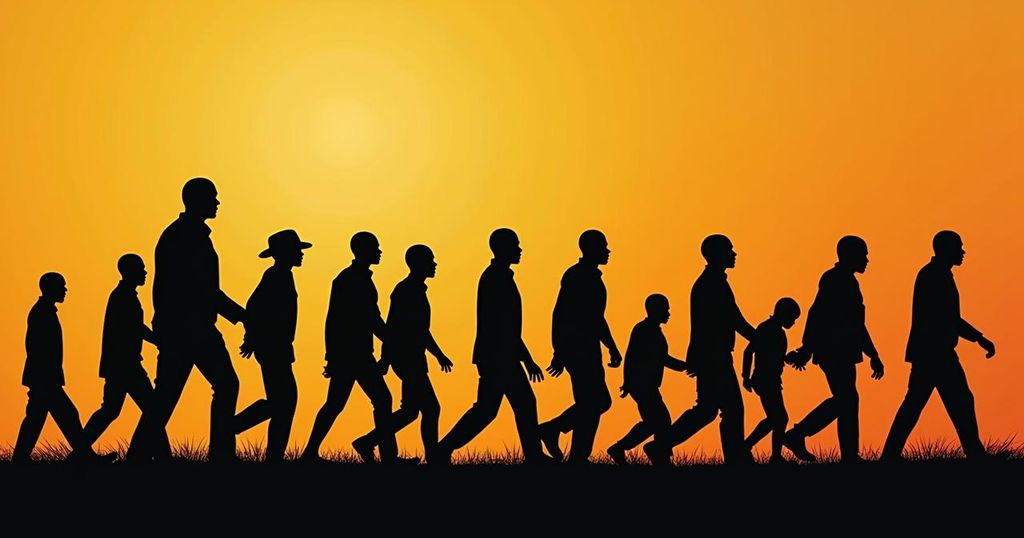Mozambique prepares for elections scheduled for October 9, with the ruling party, Frelimo, expected to maintain its dominance. Daniel Chapo, the party’s candidate and former governor, becomes prominent amid a fractured opposition led by Ossufo Momade and Lutero Simango. Despite calls for change from various candidates, internal dissent and a lack of robust campaigning diminish their chances against a well-established Frelimo presence.
In Mozambique, the election campaign is heavily dominated by the ruling party, Frelimo, renowned for its consistent governance since the nation’s independence nearly half a century ago. The capital, Maputo, is adorned with vibrant red banners representing Frelimo, particularly since the campaign kicked off on August 24. As President Filipe Nyusi is unable to seek a third term, Frelimo has introduced Daniel Chapo, the former governor of Inhambane province, as its presidential candidate. Chapo, aged 47, has emerged prominently in the political landscape, with his visage widely displayed across major urban centers within the nation. In stark contrast, the opposition remains fragmented, with 36 parties vying for the 250 parliamentary seats but largely overshadowed by Frelimo’s extensive campaign efforts. The visible presence of opposition candidates is scant, often limited to a few posters, leaving their political messages unclear. Ostensibly, Ossufo Momade from the largest opposition party, the Mozambican National Resistance (Renamo), is perceived as a key contender, yet his campaign has not generated significant enthusiasm, and internal party dissent has emerged due to perceived shortcomings in his leadership. Similarly, Lutero Simango from the Democratic Movement of Mozambique calls for political reforms but lacks the momentum necessary to threaten Frelimo’s dominance. Venancio Mondlane, formerly associated with Renamo, has carved a niche for himself among the youth, positioning himself as a critical voice for change. However, his exclusion from the parliamentary elections due to procedural issues has generated frustration; Mondlane asserted his commitment to challenge entrenched power structures. The National Election Commission (CNE) has indicated readiness for the approaching elections, scheduled for October 9, affirming over 17 million Mozambicans are registered to vote. While the CNE has acknowledged certain logistical challenges, its ambiance remains one of preparedness for a smooth electoral process. The prevailing expectation among observers is the anticipated election of Daniel Chapo as the successor to Filipe Nyusi as the next president of Mozambique.
The political landscape in Mozambique has been historically characterized by the dominance of the ruling party, Frelimo, post-independence from colonial rule. Since its formation, Frelimo has not only maintained its hold on power but has also influenced the socio-economic conditions of the nation. As the country approaches the 2024 elections, Frelimo is presenting its new candidate, Daniel Chapo, in a climate where the opposition appears disjointed and often overshadowed. This election cycle may further define the political trajectory of Mozambique, especially with the notable lack of strong opposition figures capable of mounting a significant challenge to Frelimo’s authority. Understanding the dynamics at play is crucial for comprehending the potential outcomes of the impending elections.
The upcoming elections in Mozambique signify a pivotal moment for the nation, with the ruling Frelimo party appearing poised to maintain its longstanding supremacy. The introduction of Daniel Chapo as the candidate to succeed President Filipe Nyusi marks a continuation of the party’s governance, albeit amidst a fragmented opposition that struggles to unify or create a compelling challenge. Despite the opposition’s efforts, the overwhelming presence of Frelimo’s campaign strategies and the skepticism towards the opposition candidates suggest that the ruling party is likely to retain dominance in the electoral arena. The efficacy of these elections will not only reflect voter sentiment but will also determine the future political landscape in Mozambique.
Original Source: www.dw.com







